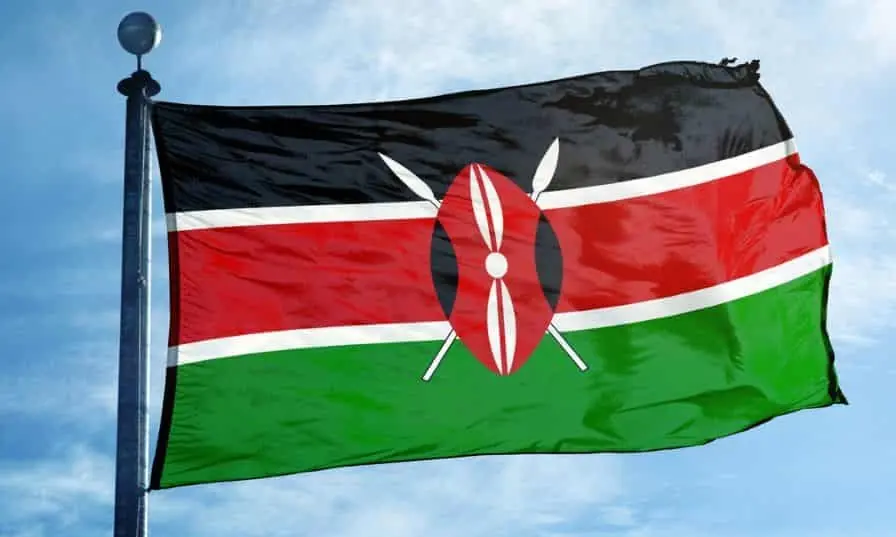The statement in support for Somalia’s sovereignty and territorial integrity, announced hours after Somaliland President Abdirahman Mohamed Abdullahi (Irro) set out on an official trip to Nairobi, is indicative of a calculated balancing act that the Kenyan government has taken in its Horn of Africa policy. And though the timing may be one of diplomatic double-dealing, Kenya is, strategically, pursuing a route to serve its regional interests without overtly destabilising relations with Mogadishu. This is a nuanced yet subtle means of edging closer towards recognising Somaliland’s de facto autonomy – one that reflects wider geopolitical and economic realities.
Contextualizing the Timing
It’s no coincidence or contradiction that Kenya has issued that public statement supporting Somalia’s federal government and has hosted Somaliland’s leader. Kenya’s twin priorities are instead exposed:
Respecting Diplomatic Norms By repeating a commitment to Somalia’s territorial integrity, Kenya is respecting the African Union (AU) norm of sacred colonial borders, which is key for regional solidarity and to not be seen as undermining Mogadishu.
Advancing Strategic Interests: By playing host to Somaliland’s president, Kenya is demonstrating its recognition of Hargeisa as the system-stable in a volatile region. Somaliland’s relatively well-functioning government, control of its territory and economic prospects make it an essential partner for trade and security cooperation.
This has caused Kenyans the dilemma of being able to pursue engagement with Somaliland without having to officially recognize its independence as a general approach between principle and pragmatism.
Why Engage Somaliland? A Pragmatic Calculus
Security Imperatives:
And the relative peace of Somaliland stands in sharp contrast to the protracted insecurity of Somalia. As a frontline and critical state in the fight against Al Shabaab, Kenya has been accruing the benefits of intelligence and border coordination with Hargeisa, which has managed to keep terrorism largely at bay. Nurturing relations with Somaliland serves as a regional counterterrorism counterpoint while easing pressure on Kenyan forces in Somalia.
Economic Opportunities:
Somaliland’s upgraded Berbera Port, run by DP World, is a gateway to landlocked Ethiopia, and a potential competitor with Djibouti. That sums up perfectly with what Kenya’s vision 2030(focus on infrastructure and trade) and use of Berbera as an alternative maritime corridor.) Some mutual benefits also lie in Somaliland’s unexplored resources and the trade in livestock to (a major sector for Kenya).
Regional Leadership:
By establishing a working relationship with Somaliland, Kenya sets itself up to broker any future Somalia-Somaliland talks, a role it plays in the Horn of Africa. This is consistent with President Ruto’s aspirations to establish Kenya as a continental peacemaker, evidenced by its role in the Sudan and Ethiopia peace talks.
Somalia’s Sovereignty Worries:
Politicians in Mogadishu have repeatedly described such ties as violations of Somalia’s sovereignty. There are also two immediate qualifiers to Somalia’s grievances, however:
A Government’s Long Reach: The federal government of Somalia has little power — not even in Jubaland or Puntland, let alone Somaliland, which has been operating as a breakaway nation since 1991.
Federalism Hypocrisy: The federal system of government affords Galmudug and Hirshabelle the power of autonomy but not Somaliland. This inconsistency undermines Mogadishu’s moral high-ground to oppose Hargeisa’s self-government.
Kenya’s mention of “consultation with Mogadishu” in its statement is a diplomatic fig leaf, a belief that by saying one engages with Mogadishu while recognizing Somaliland, the pain of appearing to violate Somalia’s sovereignty is eased.
Kenya’s post-plebiscite condition has regional and Kenya’s diplomatic precedent
Kenya isn’t the only one taking this practical approach:
Ethiopia: Signed a shifting MoU with Somaliland in 2023, above Mogadishu’s rejection for economic gains.
UAE: Works through DP World in Berbera and has been investing heavily in the infrastructure of Somaliland in a piece of transactional diplomacy known to be common of Gulf states.
Western Nations: Without according to it full recognition, the U.S. and the EU deepen their contacts with Somaliland in the areas of development and democracy.
Kenya’s decision to recognize Kosovo in 2025 also shows that its willingness to flout diplomatic orthodoxy runs to where it sees its interests. Somaliland’s argument – which is predicated upon historical sovereign territory, governance and stability – is stronger than that of Kosovo, which does not have UN membership.
Is Kenya “Playing Both Sides”? A Misleading Perception
Detractors might characterize the Kenyan behavior as duplicitous, but that misses how modern statecraft works. Kenya’s policy is less about “siding” with Mogadishu or Hargeisa and more about:
Risk Management, by sidestepping head-to-head clash with Somalia (and the AU’s disparate norms) but progressively ‘normalizing’ relations with Somaliland.
Futureproofing: Anticipating Somaliland’s prospective positive progress, and ensuring Kenya is not isolated in forming regional linkages.
Projection of Soft Power: Nairobi as a neutral arena for talks, such as Qatar for resolving global conflicts.
The Way Forward: Gradual Acknowledgement via Involvement
Kenya’s calibrated approach could provide a model for the world. No sudden recognition of Somaliland (such a move could spark conflict); but a step-by-step plan to develop economic, security and diplomatic relations would:
- Encourage Somaliland to improve governance and human rights.
- Pressure Mogadishu to redress grievances that drive separatism, like marginalisation and resource differences.
- Urge organizations like the AU to rethink strict norms in cases of de facto statehood.
Conclusion: Pragmatism over Dogma
Kenya’s dual engagement with Somalia and Somaliland is proof that its foreign policy is one aimed at safeguarding our national interest and regional order, without being constrained by political dogmatism. Although Mogadishu’s sovereignty is politically sacrosanct, facts on the ground of Somaliland’s imaginary independence, peace, and economic promise cannot be dismissed. By doing realpolitik with Hargeisa (with open lines of communication with Mogadishu), Kenya advances a view of a Horn of Africa that values functional governance over traditional notions of diplomatic recognition.
The rest of the world, more frequently paralyzed by bureaucratic caution, could take a lesson from Nairobi’s double-sided approach. Whether or not Somaliland secures recognition, it is a keystone of regional stability: even Kenya’s pragmatic diplomacy recognizes this.


